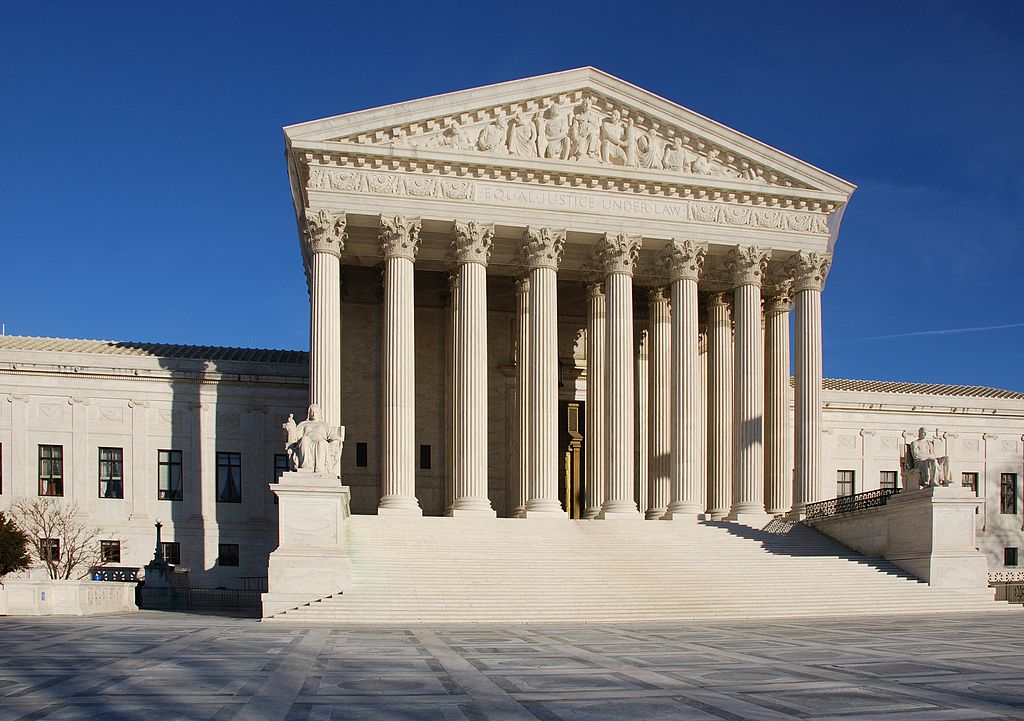On 1 July 2024, the US Supreme Court sent back to lower courts the Texas and Florida laws that aimed to limit social media platforms’ ability to moderate content. The scope of these laws is unclear and, if enforced, they could endanger Wikipedia’s volunteer-led content moderation model and the freedom of expression of volunteer editors. The Wikimedia Foundation is encouraged that the Supreme Court did not uphold these laws, and recognized that regulations targeting large, commercially-run web platforms can also impact other online spaces such as Wikipedia. We are grateful that the Court’s opinion includes language that supports the selection and curation of content, such as the work done by Wikipedia’s volunteer editors, as forms of expression protected by the First Amendment.
The Wikimedia Foundation will monitor the laws as the lower courts take action, and continue to advocate the right to freedom of expression. Learn more about the decision in this blog post.
The Wikimedia Foundation, the nonprofit organization that operates Wikipedia and other Wikimedia projects, submitted an amicus brief today urging the US Supreme Court to rule in favor of NetChoice in the upcoming cases of NetChoice, LLC v. Paxton and Moody v. NetChoice, LLC in order to protect community-governed free knowledge projects like Wikipedia.
An amicus brief, also known as a “friend-of-the-court” brief, is a document filed by individuals or organizations who are not part of a lawsuit, but who have an interest in the outcome of the case and want to raise awareness about their concerns. The Wikimedia Foundation’s amicus brief calls upon the Supreme Court to strike down laws passed in 2021 by Texas and Florida state legislatures. Texas House Bill 20 and Florida Senate Bill 7072 prohibit website operators from banning users or removing speech and content based on the viewpoints and opinions of the users in question.
These laws have prompted NetChoice, a trade organization representing many of the largest multinational technology firms, as well as the Computer and Communications Industry Association, to sue the attorneys general of Texas and Florida (Paxton and Moody, respectively), citing violations of the First Amendment and other elements of the US Constitution.
As the US Supreme Court prepares to consider these cases in 2024, the Wikimedia Foundation calls on the Court to strike down both laws, as they present a significant risk to Wikipedia and other Wikimedia projects.
In its amicus brief, the Foundation argued that the laws are unconstitutionally vague: while the drafters may have intended to target large, commercially-run social media platforms, the laws are written so broadly that they could potentially be applied to volunteer-run projects like Wikipedia. Wikipedia and other related free knowledge projects hosted by the Wikimedia Foundation have long-standing volunteer-led systems of content moderation. Yet the laws define “social media platforms” so broadly that they could potentially be applied to any website or service that allows people to exchange information over the internet.
The Foundation also argued that, should these laws be applied to Wikimedia projects, they would violate the constitutional First Amendment rights of volunteer contributors by restricting them from editing and improving information on the platform. This would diminish the quality and useability of Wikipedia for billions of readers and users worldwide.
“These laws expose residents of Florida and Texas who edit Wikipedia to lawsuits by people who disagree with their work,” said Stephen LaPorte, General Counsel for the Wikimedia Foundation. “For over twenty years, a community of volunteers from around the world have designed, debated, and deployed a range of content moderation policies to ensure the information on Wikipedia is reliable and neutral. We urge the Supreme Court to rule in favor of NetChoice to protect Wikipedia’s unique model of community-led governance, as well as the free expression rights of the encyclopedia’s dedicated editors.”
“The quality of Wikipedia as an online encyclopedia depends entirely on the ability of volunteers to develop and enforce nuanced rules for well-sourced, encyclopedic content,” said Rebecca MacKinnon, Vice President of Global Advocacy at the Wikimedia Foundation. “Without the discretion to make editorial decisions in line with established policies around verifiability and neutrality, Wikipedia would be overwhelmed with opinions, conspiracies, and irrelevant information that would jeopardize the project’s reason for existing.”
The Paxton and Moody cases, which will be heard by the Supreme Court in 2024, reflect a growing global trend of laws designed to regulate internet content, often in response to concerns about the perceived societal harms spread through large, for-profit social media platforms. In many cases, such laws inadvertently put projects like Wikipedia at risk. The Wikimedia Foundation encourages lawmakers around the world to consider the diverse internet ecosystem and to protect public interest projects like Wikipedia that host reliable, neutral, and well-sourced free knowledge.
Learn more about the Wikimedia Foundation’s position on NetChoice, LLC v. Paxton and Moody v. NetChoice, LLC in its amicus brief and this blog post. For email updates from the Foundation on public policy topics, sign up for this quarterly newsletter.
The Wikimedia Foundation extends its gratitude to Cooley LLP for their pro bono representation in this matter.
About the Wikimedia Foundation
The Wikimedia Foundation is the nonprofit organization that operates Wikipedia and other Wikimedia free knowledge projects. Our vision is a world in which every single human can freely share in the sum of all knowledge. We believe that everyone has the potential to contribute something to our shared knowledge and that everyone should be able to access that knowledge freely. We host Wikipedia and the Wikimedia projects; build software experiences for reading, contributing, and sharing Wikimedia content; support the volunteer communities and partners who make Wikimedia possible. The Wikimedia Foundation is a United States 501(c)(3) tax-exempt organization with offices in San Francisco, California, USA.
For media inquiries, please contact press@wikimedia.org.

